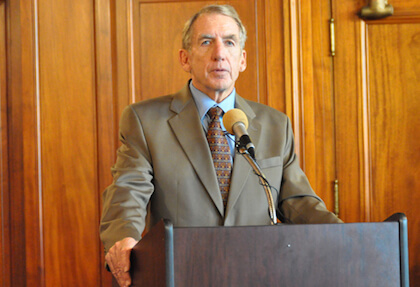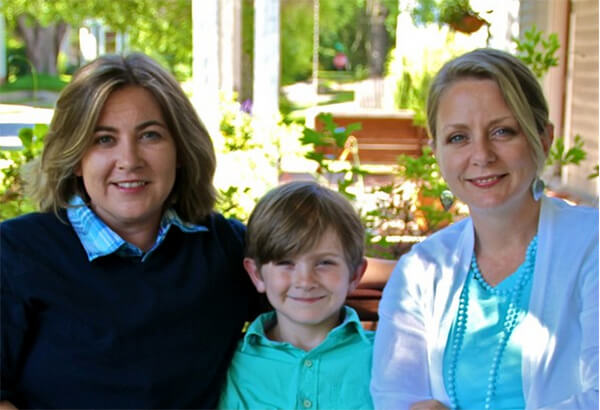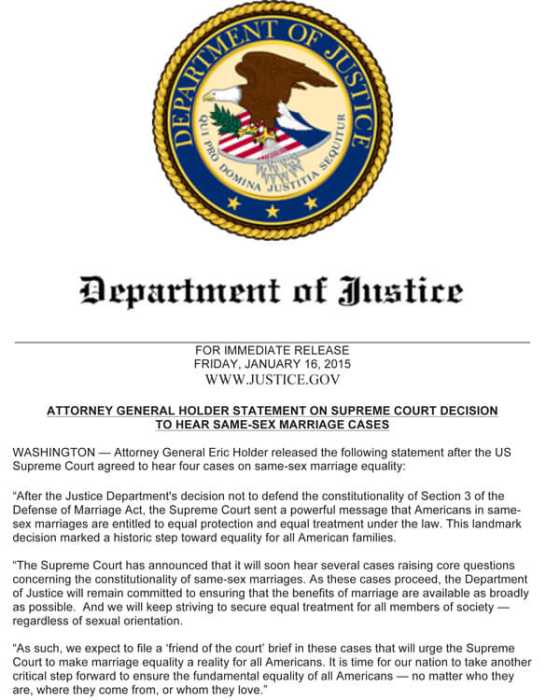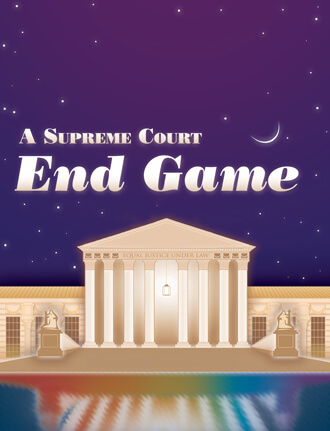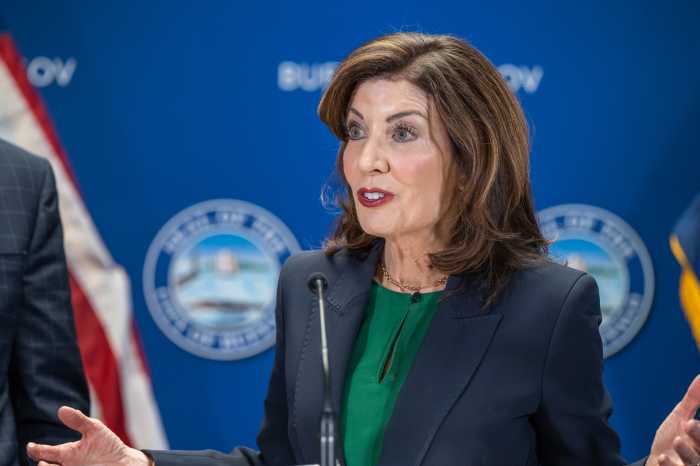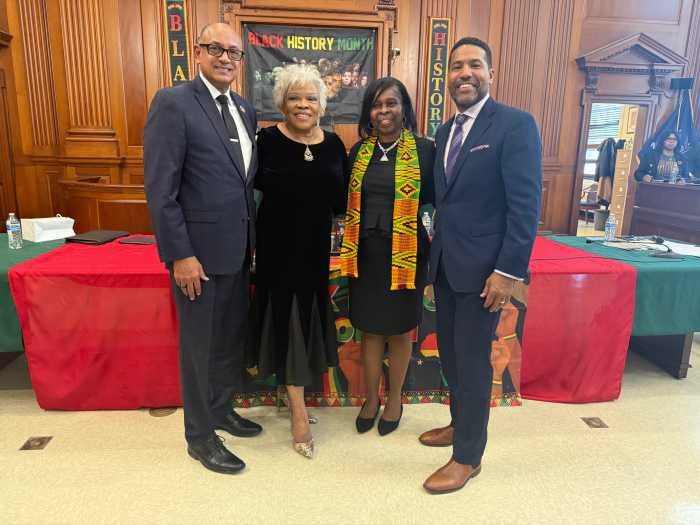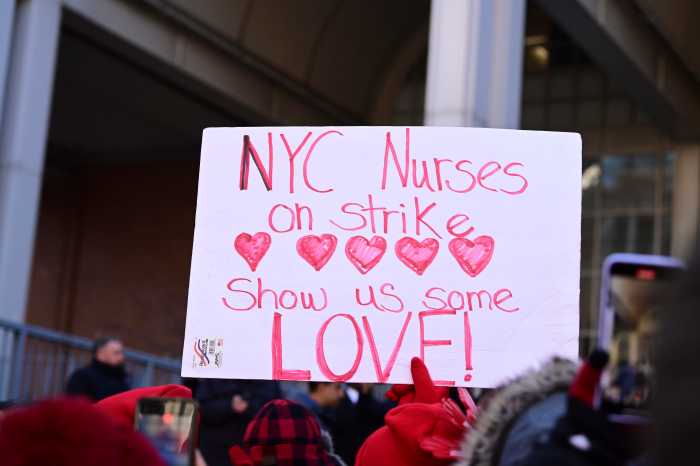BY ARTHUR S. LEONARD | In a unanimous February 18 ruling, the Kentucky Supreme Court found that the lesbian co-parent of a child has the right to intervene in an adoption proceeding initiated by her former same-sex partner’s new husband.
In confronting a case of “first impression” — one with no established precedent in the Kentucky courts — Justice Bill Cunningham wrote that the state’s Court of Appeals incorrectly reversed a trial court’s decision to grant the co-parent’s motion to intervene and to dismiss the step-father’s adoption petition.
Cunningham’s opinion for the court refers to all the parties only by their first names in order to protect their privacy, as is common in family law proceedings.
State Supreme Court blocks adoption petition by ex’s new husband for now
Amy and Melissa began their relationship in Ohio in 2005 and decided to have a child together. Melissa conceived through donor insemination and gave birth to Laura in September 2006. Amy was present throughout the delivery, and the women agreed that Laura would have Amy’s last name. Until Melissa and Amy separated in 2011, they lived together with Laura as a family, Amy taking a full share of parental duties.
After the split-up, Melissa moved with Laura to Kentucky. Amy continued to visit Laura after the move. The following year, Melissa married Wesley, and almost two years later, in 2014, he filed a step-parent adoption petition in the Kenton County, Kentucky, Family Court. When Amy learned of this, she filed a shared custody and visitation petition in Hamilton County, Ohio, Family Court, as well as a motion to intervene in the Kentucky adoption case. She sought to have Wesley’s adoption petition dismissed in light of her custody petition pending in Ohio.
The Ohio Family Court does not have jurisdiction over Laura, a resident of Kentucky, so the two cases were consolidated in Kentucky, where the trial judge granted Amy’s motion to intervene and dismissed Wesley’s adoption petition. In effect, the Kentucky trial judge decided to reorient the case away from Wesley’s adoption to Amy’s action for shared custody and visitation.
Wesley appealed and the Kentucky Court of Appeals reversed the trial court, holding that Amy did not have “standing” to seek to adopt Laura and so was not entitled to intervene in Wesley’s adoption case. The appeals panel ordered the family court to reinstate the adoption proceeding.
This time Amy appealed.
Supreme Court Justice Cunningham prefaced his discussion with the assertion that the case “is not about same-sex relationships, changing social mores, or notions about definition of family, or life styles.”
He continued, “This case is about people and their ability to participate in a lawsuit in which the outcome may adversely affect their interest. What we write here today applies equally to a myriad of human relationships including heterosexual parenting, boyfriends, girlfriends, grandparents, and others. Most importantly, this case is about Laura. Sometimes the emotions which envelope these types of cases cause this primary concern to be overlooked.”
At its heart, wrote Cunningham, was the Court of Appeals’ mistaken conflation of the concepts of intervention and standing.
“Standing to seek adoption is not a condition for intervening in an adoption proceeding,” he wrote. “Our analysis is concerned only with Amy’s right to intervene in the adoption proceeding.”
There, Cunningham found that Kentucky’s procedural rules allow an individual to intervene where they claim “an interest… [and] the disposition of the action may as a practical matter impair or impede the applicant’s ability to protect that interest.” If Wesley’s petition were granted, he and Melissa might have the power as Laura’s legal parents to exclude Amy from Laura’s life.
Amy, Cunningham noted, “is claiming a cognizable legal interest — i.e., maintaining a relational connection with the child, either through custody or visitation.” Granting Wesley’s adoption petition “could impair or impede Amy’s proffered custodial interest since, absent her intervention, the adoption proceedings would have concluded before her custody rights were determined.”
On the other hand, if she gained joint custody before the adoption proceeding were concluded, she would “share the right to make decisions concerning the major aspects of Laura’s upbringing.”
So, the State Supreme Court concluded, Amy was entitled to intervene as a matter of right.
When Melissa and Amy planned to have a child, they executed a written agreement with their sperm donor that made clear they contemplated that Amy and Melissa would raise the child together as parents. Cunningham noted the parties’ disagreement about whether that document is an enforceable contract, but wrote that the issue was not “dispositive” in resolving the case. Instead, he viewed the contract as “instructive evidence demonstrating the intent of Amy and Melissa to raise Laura as co-parents,” and so bolstering Amy’s claim to have a legal interest in intervening in the adoption proceeding.
The Supreme Court also found that the trial judge made a “logical decision” in finding that Amy’s custody claim should be resolved before addressing Wesley’s adoption petition. The Supreme Court sent the case back to the trial court, reinstating that court’s order granting intervention and dismissing the step-parent adoption petition.
Amy is represented by attorneys Margo L. Grubbs, Jennifer Blain Landry, Lisa T. Meeks, and Lambda Legal staff attorneys Camilla B. Taylor, Kyle A. Palazzolo, Christopher R. Clark, and Gregory R. Nevins. Counsel for Wesley are Jacqueline S. Sawyers and Amy Howard Anderson.

